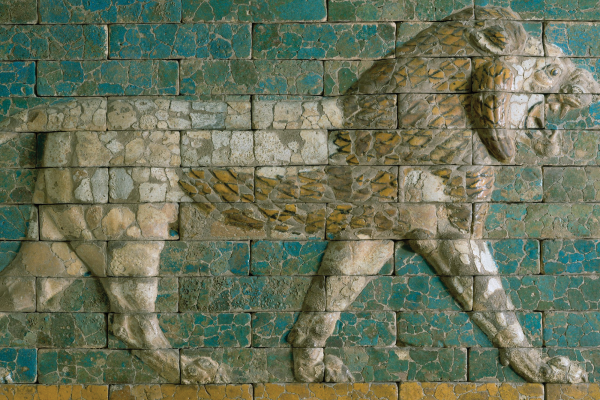THIS ISN'T A lion: It’s a miracle. You can almost hear the imperious growls that would have thundered in the imaginations of pedestrians approaching ancient Babylon’s Ishtar Gate. They would have walked along the Processional Way to enter the inner city, flanked by cerulean blue tile walls with 120 nearly life-sized lion bas-reliefs—a spectacle!
Not so in 1899, when German archaeologists arrived on the banks of the Euphrates—80 miles from Baghdad—and dug until 1917. Babylon’s splendor had been reduced to mounds of thousands of glazed brick fragments, which would fill nearly 800 crates sent to Berlin. There, each piece was laboriously cleaned, stabilized with modern material, sorted and assembled into whole bricks, and ultimately restored into panels of proudly parading beasts in Berlin’s Pergamon Museum. Iraq has been trying to get them back since the 1990s.
For nearly two centuries the Greeks and the British have been arm wrestling over the Parthenon Marbles—including a lengthy frieze of a mythical Greek feast, a muscled river god, and voluptuous female figures—taken from the Acropolis in Athens and now displayed in London’s British Museum. Lord Elgin was Britain’s ambassador to the Ottoman Empire, which encompassed Greece. Greece claims that Lord Elgin stole them, that the sale was illegitimate since Greece was occupied, and that they should be returned.
Read the Full Article

